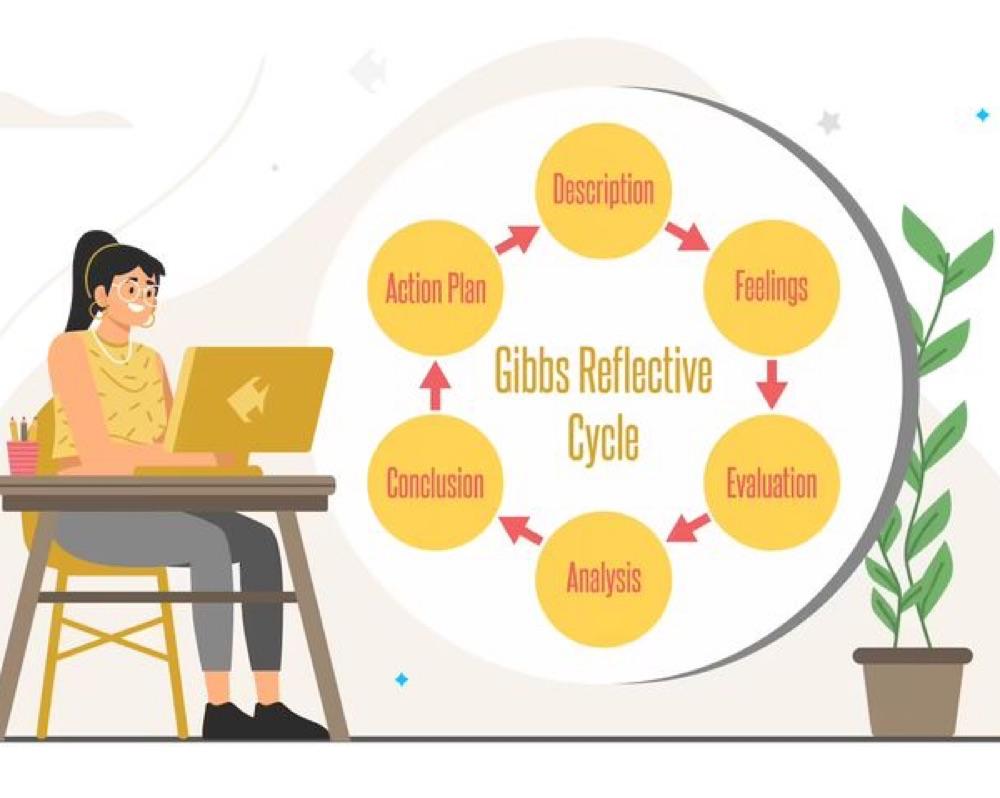Gibbs’ Reflective Cycle
Curated from: productive.fish
Ideas, facts & insights covering these topics:
4 ideas
·643 reads
8
Explore the World's Best Ideas
Join today and uncover 100+ curated journeys from 50+ topics. Unlock access to our mobile app with extensive features.
Gibbs’ Reflective Cycle
Your ability to comprehend and benefit from this "learning from experience" process is the goal of Gibbs' Reflective Model. Although this approach may be utilized in many contexts, including self-improvement, coaching, and mentoring, it is most frequently used to explain how people discover their actions and beliefs.
9
219 reads
Why Is Gibbs' Cycle oWhy Is Gibbs' Cycle of Reflection Important
Gibbs' Cycle of Reflection is important because it provides a structured and systematic approach for individuals to reflect on their experiences and learning. By going through each stage of the cycle, individuals can better understand their experiences, identify what they have learned, and develop a plan for future actions. This can help ensure that the reflection process is not just a one-time event but a continuous process of learning and improvement.
7
127 reads
6 Stages of Gibbs’ Model o6 Stages of Gibbs’ Model of Reflection
Step 1. Description
Step 2. Feeling
Step 3. Evaluation
Step 4. Analysis
Step 5. Conclusion
Step 6. Plan of Action
11
175 reads
Final Reflection
The Gibbs Reflective Cycle is a valuable tool for helping individuals to reflect on their experiences and learn from them. By going through each stage of the cycle, individuals can better understand their experiences, identify what they have learned, and develop a plan for future actions. This can ultimately lead to personal and professional growth and development.
7
122 reads
IDEAS CURATED BY
CURATOR'S NOTE
Gibbs' cycle of reflection involves a "thinking" procedure. Self-awareness is the first step, followed by questioning yourself, "What happened?" Why? After that, assemble your ideas and analyze to improve your comprehension. In order to improve future outcomes, you can utilize your findings to develop conclusions and make adjustments.
“
Maria from Productive's ideas are part of this journey:
Learn more about corporateculture with this collection
How to manage digital distractions
The impact of technology on mental health
The importance of setting boundaries
Related collections
Similar ideas
Read & Learn
20x Faster
without
deepstash
with
deepstash
with
deepstash
Personalized microlearning
—
100+ Learning Journeys
—
Access to 200,000+ ideas
—
Access to the mobile app
—
Unlimited idea saving
—
—
Unlimited history
—
—
Unlimited listening to ideas
—
—
Downloading & offline access
—
—
Supercharge your mind with one idea per day
Enter your email and spend 1 minute every day to learn something new.
I agree to receive email updates

